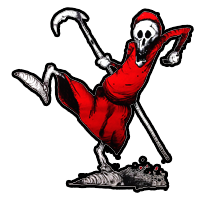Welcome. Steve Grieve and The Mourners, so what are we mourning?
Ahmet Ertegun, the founder of Atlantic records once made a sweeping statement – he claimed that all the good riffs had been played! FFS!!! So all the guitarists who were swept up and inspired by all that great music of the 60s and 70s should just hang it up and forget about it?
What Ahmet really meant was that the legacy of those times was a modern template for song writing, and an endless font of great ideas, but where you can still hear the roots of jazz and the Blues.
So where is modern song writing at? After hearing the top ten of JJJ’s “Top 100” it sounds a bit like everyone is writing the same song, but adding different production values. The writers and producers sound more interested in the amount of delay, reverb and synthetic spatial keyboard sounds than anchoring their songs in any obvious referential influences, and they don’t seem to be paying respect to what has come before. Could it be because of that a lot of the songs will not survive the magical test of time? They are part of the throw away culture and fashion of the times – there is good pop but man, it takes a bit of finding – there is a lot of shite out there.
Song writing is a craft that requires dedication and perseverance – writing a simple song can be a complex task. Distilling observations and experience into a vignette, constructing a lyric that has a meter to compliment the rhythm, and then expressing a theme in the lyric sympathetic to the emotion, mood or tone of the melody. Another crucial element is being able to hear and acknowledge the song’s roots, so you can hear where the writing is coming from, what style of song it is.
Now writing a blues or rock song can present challenges, there is no point of a middle class white boy rehashing “she done me wrong”, or “I’m out on the street” lyrics, we all now really know where that’s at. You can allude to those situations and the themes of the greats, but to spell out verbatim isn’t going to cut it. We learn our deepest lessons from myths and fables, and songs should reach in and inhabit the soul – they should stir the memory, touch the longing and pain we all carry, give us a sense of belonging, confirm our deepest desires and pleasure, stir up some happiness or scream at an unjust world – songs celebrate life.
Steve Grieve and The Mourners is primarily a vehicle for the song writing team of Dan Myles and Steve Grieve. The songs are trying to be all the above, out of respect for the craft and all the great artists who came before. There are references and roots in the songs, an obvious nod towhat has come before and an honest attempt to move the craft forward.
Caterpillar Maze is an album of songs touching on our many influences. We like to think we may have succeeded in putting our own stamp on the music we love, and, as far as we can tell, there isn’t another Australian band at the moment that sound anything like we do. We would love to know if you can hear that, and we hope these songs might resonate with you and your own ideas about what a good band is and should be playing. We cover a lot of ground in these songs. The Blues is the primary roots of our band, but there are other influences aplenty, with rock, funk, country and Americana elements in there as well.
Steve Grieve and The Mourners came out of Canberra in the early 80s. The band started out during the declining years of the great Oz pub rock era, when in order to stand out you not only needed good songs but you needed to have a mix of insight, bravado and be tough enough to muscle your way into the scene. You needed be able to play your instrument well and have a band full of players that all understood exactly what their part was in chasing the holy grail of being in a good band. The magic mantra of 1% talent 99% perseverance is a great insight into the process, and the hard work of achieving this goal requires mental focus, discipline and an unwavering belief. Then being able to generate that belief and deliver every time the band walks on stage, slowly brings on the next mystic mantra, the magical illusion of smoke and mirrors, making the difficult task of being a great band look natural and easy. You only really learn if you are achieving these things when the next mantra kicks in, preparation meets opportunity.
For us back in 1984 out of nowhere we got asked get to be the opening act for a one of the major great international blues acts that the planet has ever known, the virtuosic blues great Johnny Winter. We pulled it off, the road manager and the band made an effort to let us know we had it. We weren’t kidding ourselves, we were on our way to being a great band.

